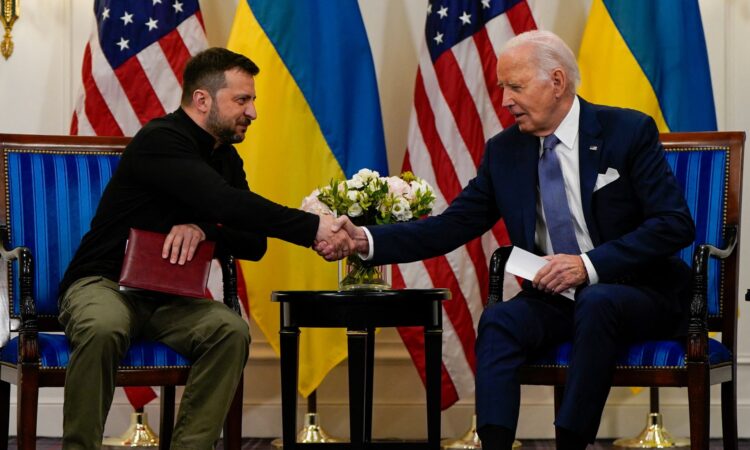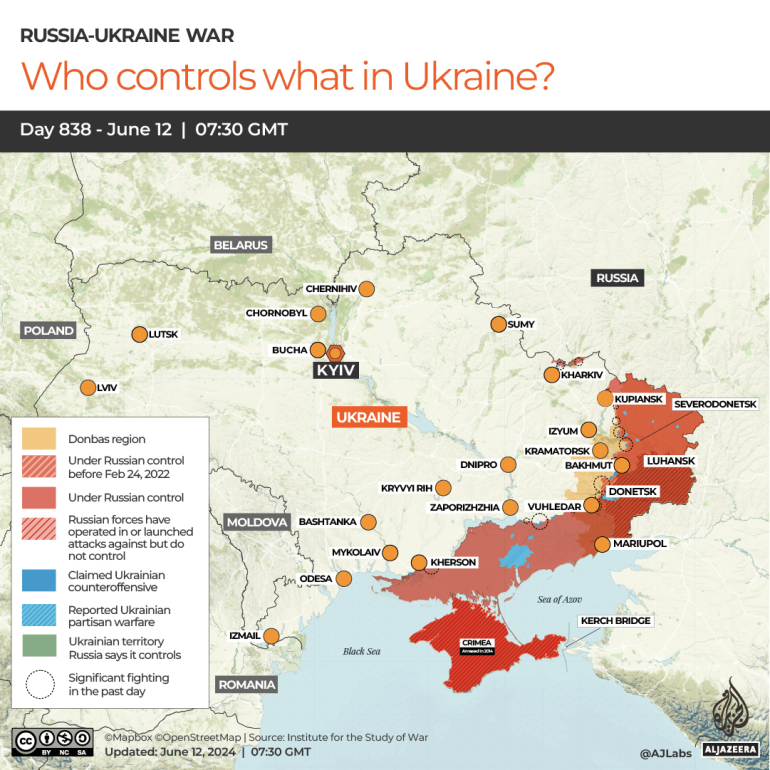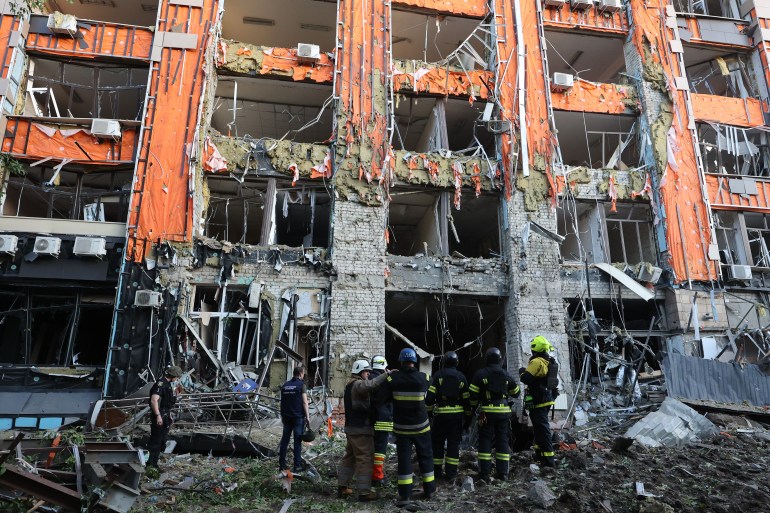US and Ukraine’s EU allies rush to agree deal on Russian assets ahead of G7 | Russia-Ukraine war News

Thorny issues remain as Washington tries to overcome scepticism in Western capitals.
Rome, Italy – US officials are trying to get European allies on board for a deal to present at the G7 leaders summit later this week on how to use the interest from Russian frozen assets to support war-torn Ukraine. But with the meeting in southern Italy starting on Thursday, discussions are still ongoing.
Some European countries are not yet fully convinced over the United States-led proposal, diplomatic sources told Al Jazeera.
Western allies immobilised about $260bn of Russian sovereign assets soon after Russia ordered the invasion of neighbouring Ukraine in February 2022. Most of that money is in the European Union.
One of the options being discussed is a US proposal to give a $50bn loan to Ukraine. That money would be paid back by the interest accrued on Russian assets, which generate up to $3.7bn a year in profits. But there are thorny financial and logistic issues at play.
The US wants guarantees that the interest is secure. Washington’s concerns are heightened because the decision to freeze assets has to be unanimously renewed every six months by all EU member states. Should any EU government oppose the scheme, such as Hungary for example due to its ties with Russia, then the US would find itself without the money to repay the loan.
And what if the warring sides sit at a negotiating table and Russia gets its assets back – who would pay for what remains of the loan? Would Moscow agree to pay? EU and Group of Seven (G7) countries are still sorting out details on how to share the eventual risk.
EU countries are divided. Germany and France are sceptical, while the EU Commission and Council are also not fully convinced, diplomatic sources with knowledge of the talks told Al Jazeera.
A third source said there is political will towards an agreement at the summit, even if technical problems need ironing out. Should these not be resolved by the end of the summit, efforts would still be made to find a formula to communicate that negotiations continue, they said.
“This is a priority for the United States. We believe it’s a priority for the entire G7,” US President Joe Biden’s national security adviser, Jake Sullivan, said last week. “We want to see every country come on board with a method by which we can mobilise resources for Ukraine at scale so that they are able to have what they need to be able to succeed in this war.”

Ideas on what to do with the assets have been floating around since the start of the conflict.
The US initially insisted on seizing them outright, but European countries have been reluctant. Such an epic seizure would have been a first in international law and it would have jeopardised trust in the euro as an international reserve currency.
Moscow has made it clear that any seizure would have amounted to theft.
Russian President Vladimir Putin sent a warning shot in May by giving authorities jurisdiction over US-owned property in Russia to compensate for damages from any future bids to take Russian assets.
The idea of a US loan emerged as a potential compromise, even if the difference in the amount between seizing the assets and using their profits is stark – from $260bn to $50bn.
Still, a final agreement – or a show of intent – would send a strong message of unity against Russia, observers say.
“The US wants to bring this as a tangible result to the G7 – so there will be a deal, but it will be limited and with thousands of strings attached,” said Marta Dassu, director of European affairs at the Aspen Institute think-tank and a former deputy minister of Italy’s foreign affairs office.
The summit will have a strong political component compared to traditional G7 themes usually focused on global economic governance, Dassu noted.

The November US presidential elections are also in the frame.
This is the last G7 before a potential shift in the White House administration that could have radical consequences for Ukraine should former US President Donald Trump win.
The last package of military aid to Ukraine, worth $61bn, was wrangled over in the US Congress for months, suggesting that even if Biden is re-elected, further painful fights for aid lie ahead.
Western aid is fundamental for Ukraine as the war drags on for a third consecutive year. The delay in sending US military aid paved the way for Russia to make steady territorial gains – for which Biden apologised.
Ukraine’s President Volodymyr Zelenskyy will be in Puglia on Thursday.
At the last G7 summit, while Kyiv was still calling for support, its forces were in the middle of a counteroffensive which they hoped would be decisive in pushing back Russian forces. But Ukrainian soldiers are on the back foot presently, with Moscow making steady gains in the east and north of the country.
According to some observers, a $50bn loan would ensure Kyiv has financing for 2025, regardless of who wins the US election in November.






